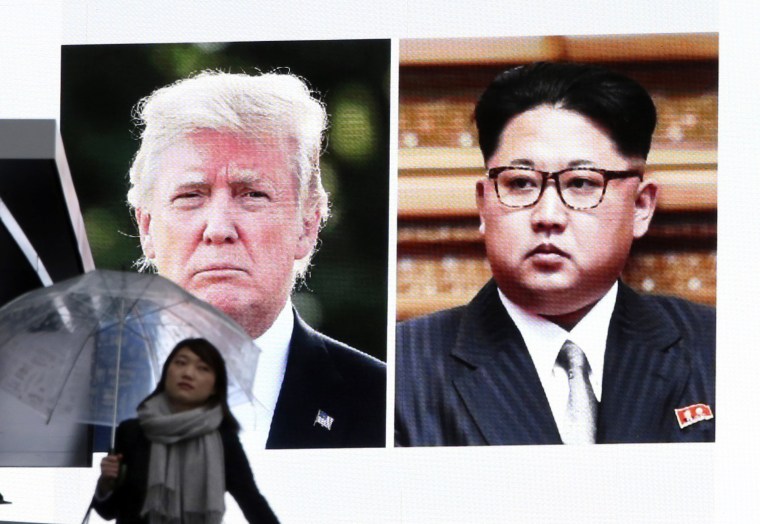A few weeks ago, White House National Security Advisor John Bolton laid out a provocative vision for U.S. policy toward North Korea. "We have very much in mind the Libya model from 2003, 2004," he told Fox News. The same morning, Bolton told CBS News, "I think we're looking at the Libya model."
This, not surprisingly, didn't sit well with North Korea, for reasons that should be obvious. Under the "Libya model," Moammar Gadhafi gave up his nuclear program, his government faced a domestic rebellion, his country faced an American military offensive, and he was killed soon after.
In a brief Q&A with reporters at the White House yesterday, Donald Trump was asked about North Korea's objections to Bolton's comments. The American president seemed eager to throw his top national security aide under the bus.
"Well, the Libyan model isn't a model that we have at all, when we're thinking of North Korea. In Libya, we decimated that country. That country was decimated. There was no deal to keep Gadhafi. The Libyan model that was mentioned was a much different deal. This would be with Kim Jong-un -- something where he'd be there, he'd be in his country, he'd be running his country. His country would be very rich. His people are tremendously industrious. [...]"But the Libyan model was a much different model. We decimated that country. We never said to Gadhafi, 'Oh, we're going to give you protection. We're going give you military strength. We're going to give you all of these things.' We went in and decimated him.... This is just the opposite."
Part of the problem here is that Trump, even after weeks of discussion, doesn't seem to know what the "Libya model" is. The Republican appears to be under the impression that the model refers specifically to the NATO military offensive in 2011. It doesn't. What Bolton was describing was the model from 2003 in which a country voluntarily gave up its nuclear program and welcomed weapons inspectors.
But there's also a larger concern, which extends beyond the American president's confusion about a policy he really ought to understand.
What's even more troubling is that Trump seems a little too eager to make Kim Jong-un happy. Confronted with the dictator's dissatisfaction over John Bolton's comments on the White House's perspective, the American president scrambled to reject the "Libyan model" his national security advisor publicly endorsed.
Which came on the heels of Trump praising Kim for his "excellent" treatment of American hostages.
Which followed Secretary of State Mike Pompeo insisting that Kim "shares the objectives of the American people."
Which came just a couple of weeks after Trump touted North Korea's "very honorable" dictator.
Wanting to reach a peaceful agreement is one thing; pandering to a tyrant is something else. For months, Trump World described its approach to North Korea as "maximum pressure." That's apparently been replaced with "minimum pressure."
The Washington Post noted this week that Trump’s critics “fear that a president determined to declare victory where his predecessors failed will allow his desire for a legacy-making deal to override the substance of the negotiations.” By all appearances, that's already begun.
